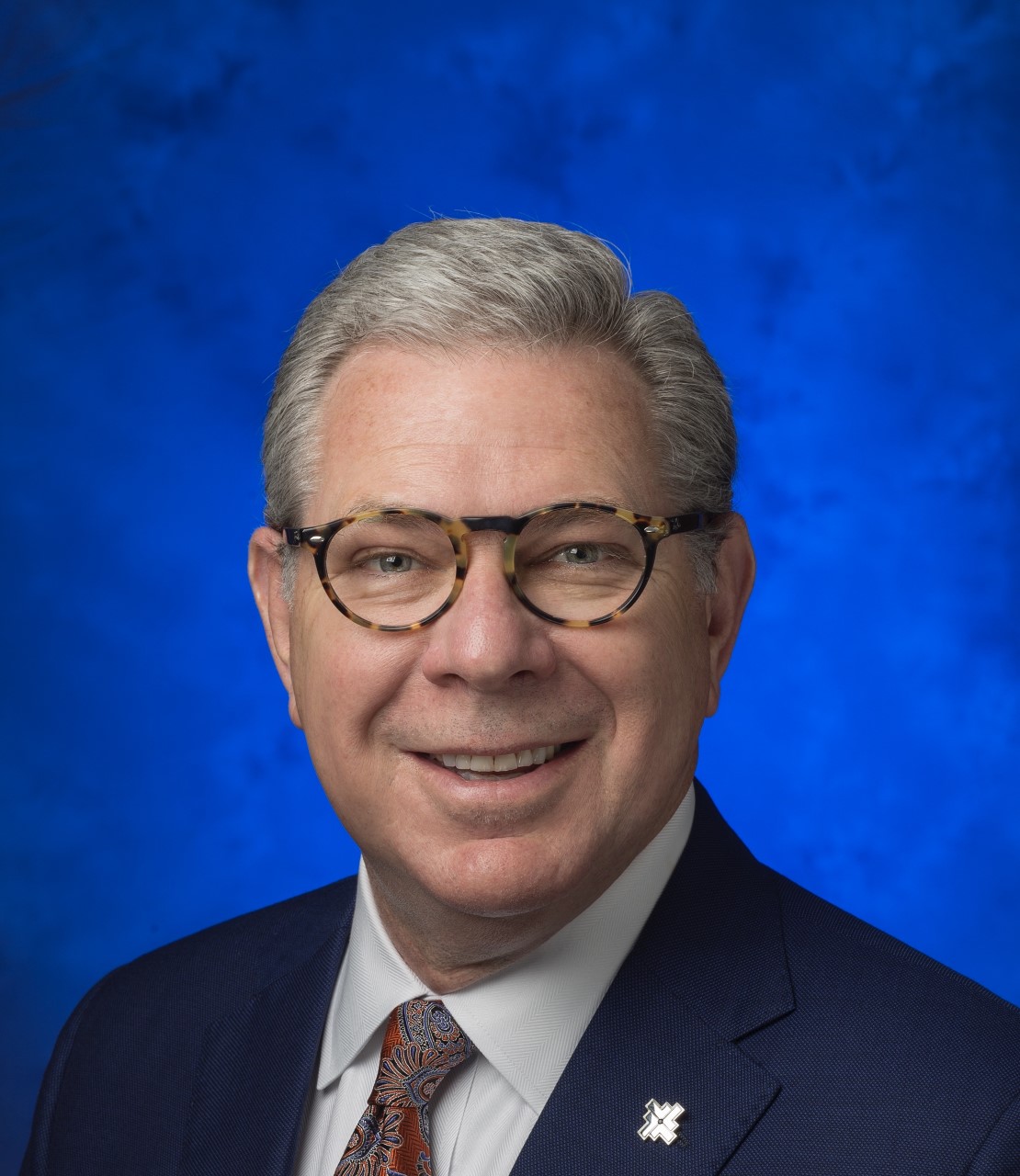Healthcare MBA Opens Doors in Dallas and Beyond

Healthcare students discuss coursework.
In this Q&A, Baylor lecturer Glenn Robinson explains why now is the perfect time to pursue an EMBA with a concentration in Healthcare Administration.

With more than 30 years of experience in hospital and healthcare management, including 13 years as the president of Baylor Scott & White Medical Center, Glenn Robinson can testify to the dramatic transformation of the healthcare industry over the past decade. Now, as a part-time lecturer for Baylor’s EMBA program, he helps his students launch meaningful careers in Dallas’s growing healthcare ecosystem and across the country.
In the conversation below, Glenn shares his thoughts on the strategic value of a Dallas-based EMBA with a concentration in Healthcare Administration.
What are some of the primary ways in which the practice of healthcare administration is evolving?
If we look at what has happened in healthcare over the past decade, I can point to several major trends.
The first trend is the growing role of health systems in creating a more comprehensive enterprise. In the U.S. there are roughly 1500 healthcare systems containing 6000 hospitals. The number of systems will decline over the years as each system expands its footprint. Healthcare administrators need to become increasingly familiar with mergers and acquisitions, and they should be prepared to work under new leadership. Flexibility will be paramount.
Second, we are seeing a continued shift from a fee-for-service environment to a value-based care payment method. Healthcare leaders are learning to navigate the waters of value-base care, where they are no longer being paid for services rendered—such as a surgery, office visit or test—but they are paid based on their ability to deliver higher quality of care that keeps patients out of the hospital.
We are also witnessing an increased emphasis on collaborating effectively with public health workers, elected officials and government administrators on the policies and strategies that impact the day-to-day delivery of healthcare.
Why is now an opportune time to pursue a career in healthcare administration? What specific roles are in high demand?
Growth opportunities in healthcare have never been more plentiful. Post-COVID, more and more healthcare administrators are retiring and up to 25 percent of overall employees are moving out of healthcare or shifting to a new role. This movement is creating a demand for new leadership at a faster pace than we have ever seen before—and it is creating a golden opportunity for middle managers to rise quickly, especially once they have earned their MBA.
When it comes to roles in high demand, we can certainly point to CEOs, COOs, chief nursing officers and similar positions. But we are also seeing a massive need for human resources talent to cope with the ongoing shortage of healthcare workers.
What would you say to a student who is wary of the burnout that has contributed to these shortages?
Search your heart. In healthcare, we often use a term that is more aligned with ministry: calling. If you feel called to serve others, healthcare can be a rewarding industry. Every day, you change lives for the better. Examine your options and join us when you are ready. We need your help to make our healthcare system more affordable, more equitable and more effective for future generations of Americans.
Who is a good candidate for the EMBA in Healthcare Administration program?
The traits that make an excellent candidate for our program are the same traits that make an excellent healthcare leader: Teachability. Willingness to embrace change. Dedication to lifelong learning. Passion for improving our American healthcare system. A social conscience that recognizes the disparities that exist.
Many EMBA students in our Healthcare Administration concentration have experience in leading teams and managing budgets, and roughly 40 to 60 percent are clinicians. But we have students from a variety of roles who come into this program and flourish. I think of a mid-level nursing leader in a Dallas-based healthcare system who was recruited by a prominent system in the Northeast for a much higher-level nursing role right after completing her EMBA. I think of the many physicians who have completed the program and gone on to become chief medical officers across the country. And I think of students like the one who was a sales representative for a healthcare vendor during our program. Today, he is the CEO of a different healthcare manufacturing company. There are countless paths to success.
What are the strengths of Baylor’s EMBA program?
One of the greatest strengths is that this program brings in industry leaders to teach, network and offer perspective on how classroom concepts play out in the real world. In the classes I teach, I ask every outside speaker to bring business cards to share with our students. Just from those simple interactions, I have known students who made contacts that helped them land a job. Another strength of the program is its portability. If you earn an EMBA in healthcare and decide to pursue a career in a different industry down the road, you have a degree from an internationally respected institution that transfers easily.
What will students learn in this program that they will not learn on the job?
I was the CEO of a hospital before I went back to get my MBA. I remember my boss saying to me, “Why would you want to get an MBA? The reason you get that degree is to punch your ticket. You already have your ticket. You are already in.” But I wanted to learn. What programs like the EMBA do is teach industry leaders why they operate the way that they do. They also broaden your understanding. When you are a hospital leader, you may not know about how a skilled nursing facility is run. Or you may know how rising pharma costs may impact your institution, but you do not understand the ins and outs of their industry. At Baylor, the chief nursing officer and hospital administrator and pharma rep have an opportunity to learn about how the others think and operate. .
Why is Dallas a strategic place to launch a career in healthcare administration?
DFW is home to more industry leaders than I can count. HCA, the largest for-profit healthcare system in the world. Lab Corp, Quest Diagnostics, Baylor Scott & White Medical Center, McKesson, United Healthcare Group, Parkland Health System, Dallas Children’s. The list goes on and on. This semester, my cohort includes two practicing physicians, a pharmacist, a healthcare sales rep, a physical therapist and leadership experts from these and other local institutions. I love bringing them all together for our weekend sessions. These times are filled with energy and excitement about where healthcare is heading and how we can make it better.
What's Next
If you’re ready to take your career in healthcare administration to the next level, explore Baylor University’s full-time Healthcare MBA or Executive MBA in Dallas. To speak to one of our admissions advisers, fill out the form below.